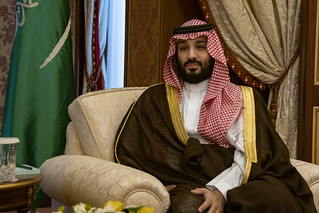FACTBOX-Saudi Arabia's key economic and social reforms

- Country:
- Saudi Arabia
Saudi Arabia's Crown Prince Mohammed bin Salman has pushed through social and economic reforms as part of plans to modernize the conservative Muslim kingdom and attract foreign investment under a diversification drive. The following are some of the major reforms implemented since his Vision 2030 agenda was announced in 2016:
SOCIAL REFORMS
April 2016: Saudi Arabia curbs the powers of religious police that had patrolled public spaces to impose strict rules on women's dress and enforce bans on alcohol, music, prayer-time closures and the mixing of men and women.
December 2017: The government ends a 35-year prohibition on cinemas, plans to open more than 300 movie theatres by 2030.
June 2018: Saudi Arabia lifts a decades-old ban on women driving cars. However, authorities arrested several women's rights activists before and after the move amid a broader crackdown in which scores of critics have been arrested.
January 2019: A royal decree allows music to be played in restaurants as public entertainment flourishes around the kingdom and the ban on gender-mixing eases.
August 2019: Regulatory changes allow adult Saudi women to travel without permission and exercise more control over family matters, further eroding a heavily criticized male guardianship system but leaving parts of it intact.
October 2019: A new tourist visa regime seeks to attract holidaymakers. Modest dress code is set for visitors, ending the requirement that women wear all-covering robes. Foreign men and women are permitted to rent hotel rooms together without proving they are related. Alcohol remains banned.
ECONOMIC REFORMS
2016
Stock market reforms double ownership limits to 10% for foreign institutional investors.
New labor regulations restrict certain jobs to citizens and raises quotas for companies to hire Saudis. Power and water subsidies are cut under fiscal reforms.
The National Project Management Organization is set up to reduce costs on state infrastructure projects.
2017
The government launches the Citizen's Account, a cash handout for low- and middle-income Saudis to offset austerity measures. Saudi Arabia detains scores of senior princes, ministers and top businessmen at Riyadh's Ritz-Carlton hotel in an anti-corruption campaign seen by critics as a power play and shakedown of the crown prince's rivals. Authorities say they seized more than $100 billion through financial settlements.
2018
A 5% value-added tax (VAT) is imposed to improve non-oil revenue generation.
Foreign investors are granted full access to NOMU, a parallel market for small- and medium-sized enterprises. New bankruptcy law regulates procedures such as settlements and liquidation.
2019
The Capital Market Authority and Debt Management Office reduce fees and commissions to encourage secondary market debt trading.
Sin tax on electronic cigarettes and sugary drinks imposed in a bid to diversify revenue streams. Saudi Arabia relaxes a 49% limit for foreign strategic investors in companies listed on the main Tadawul stock market.
The capital market law is amended to allow the establishment of other exchanges alongside Tadawul. Saudi Arabia begins accepting license applications in the military-industrial sector, a major target for diversifying the economy away from oil.
Also Read: Saudi Arabia says it is not behind Iranian tanker struck in Red Sea
(This story has not been edited by Devdiscourse staff and is auto-generated from a syndicated feed.)
ALSO READ
US envoy asked Middle East foreign ministers to mediate with Iran
Children of ministers add excitement to Karnataka LS elections
Lufthansa suspends flights to Tehran, foreign ministers hold call
German, Iranian foreign ministers discussed Middle East tensions, says Berlin
A particular political party and its ministers are making false and misleading statements to create confusion: Delhi LG Saxena on subsidies.










